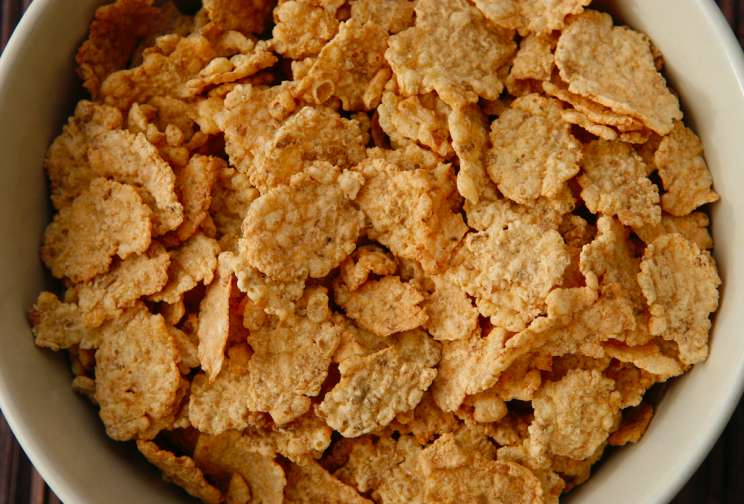Sugar levels ‘still too high’ in children’s cereals despite reduction of salt

A new study has found that sugar levels in cereals have remained consistently high since 1992 despite significant cuts to salt content in the same products.
Salt levels in popular breakfast cereals sold in the UK since 2004 have decreased by about 50% owing to a successful reduction programme, according to the research in the journal Public Health Nutrition.
However in “stark contrast” sugar content in the same cereals – particularly those aimed at children – has remained high, with some containing up to 35%, according to the study by Action on Sugar and Consensus Action on Salt and Health (Cash).
The study of 63 children’s cereals in 2015 found that a typical 30g serving contained a third of a four-to six-year-old’s maximum daily recommended amount of sugar of five teaspoons.
Despite the cut in salt levels the report warned that cereals still remained a major contributor to salt intake and said it was vital that the government revived the national salt reduction programme to protect as many people as possible from strokes and heart disease.

Kawther Hashem, a registered nutritionist for Action on Sugar at Queen Mary University of London and an author of the study, said: “There has been no national sugar reduction programme, as there has been for salt, which is imperative if we want to see real and measurable improvements.
“The variation in sugar content between similar products clearly demonstrates there is no technical reason whatsoever why cereals contain such high levels of sugar.
“Public Health England is due to announce a major national sugar reduction programme, as part of the Government’s Childhood Obesity Plan, in March 2017.
MORE: Teachers use body-cameras in the classroom to combat bad behaviour
MORE: Mum who received surprise package of goodies realises she sent it to herself when she was drunk
“All manufacturers must support the programme and start reducing sugar now.”
Public Health England chief nutritionist Dr Alison Tedstone said: “Reading food labels and choosing lower-sugar cereals means they still can be part of a healthy breakfast, but some simply contain too much sugar.
“We announced our programme to take sugar out of everyday products, including cereals, in September last year and we’ve been working with industry and NGOs ever since.
“We’ll publish our first progress report in late March or early April.”
Sarah Toule, head of health information at World Cancer Research Fund, added: “The food industry can play a vital role in helping our children grow up to be healthy adults and to make the healthy choice the easy choice by reducing the sugar content in their products.
“Children who are an unhealthy weight in childhood are more likely to be so as adults, putting them at risk of developing a number of health conditions, including 11 common cancers.”
Top pic: Rex/posed by model

 Yahoo News
Yahoo News 


